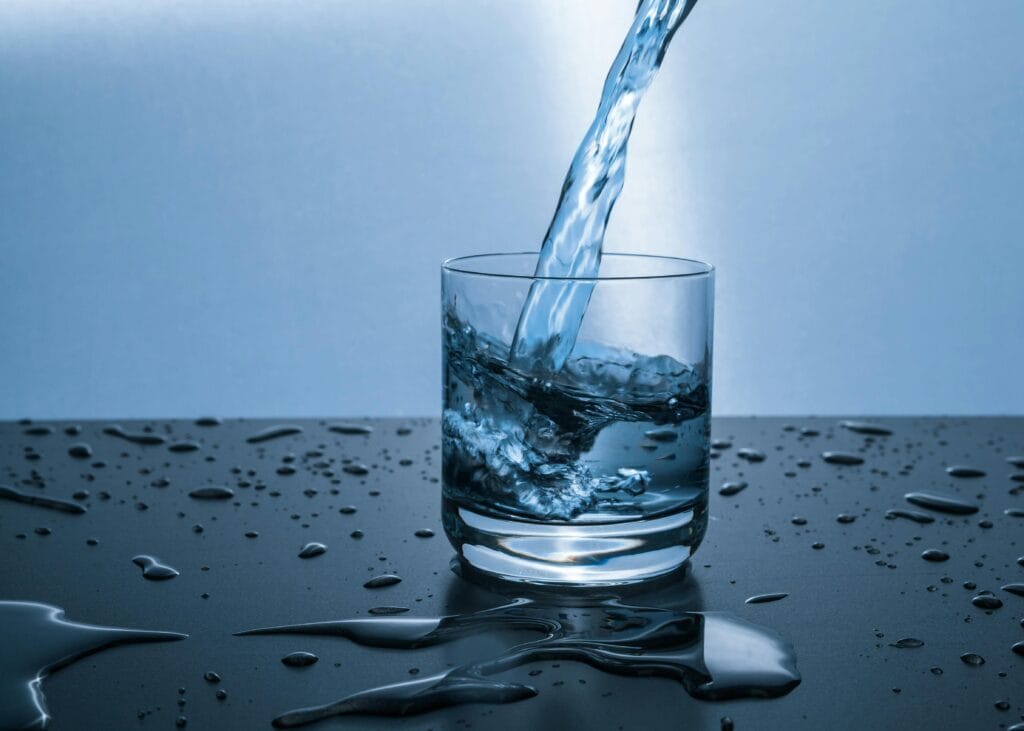Water is often referred to as the elixir of life, and for good reason. It plays a vital role in nearly every bodily function, from regulating temperature to aiding digestion. But did you know that drinking water can also be a powerful tool for weight loss? In this comprehensive guide, we’ll explore how water can help you shed those extra pounds, the best practices for drinking water for weight loss, and how to incorporate this simple habit into your daily routine. By the end of this article, you’ll have all the knowledge you need to use water effectively as part of your weight loss journey.
The Science Behind Water and Weight Loss
1. Water Increases Calorie Burn (Thermogenesis)
Drinking water can temporarily boost your metabolism. This process, known as water-induced thermogenesis, occurs when your body expends energy to heat the water to body temperature. Studies have shown that drinking 500 ml of water can increase metabolic rate by 24-30% for about an hour.
2. Water Acts as an Appetite Suppressant
One of the simplest ways water can aid in weight loss is by helping you feel full, reducing the likelihood of overeating. Drinking water before meals can create a sense of fullness, leading to lower calorie intake during the meal.
3. Water Helps with Fat Metabolism
Water is essential for the breakdown of fats (lipolysis) in the body. Without adequate water intake, the body struggles to metabolize stored fat or carbohydrates. Drinking sufficient water ensures that your body is functioning optimally in burning fat for energy.
4. Water Reduces Liquid Calorie Intake
Many people consume a significant number of calories through sugary drinks, sodas, and alcohol. By replacing these high-calorie beverages with water, you can drastically reduce your daily calorie intake, aiding in weight loss.
5. Water Eliminates Waste and Reduces Bloating
Adequate water intake helps your body eliminate waste through urine and feces. It also prevents constipation, which can lead to bloating and a feeling of heaviness. By staying hydrated, you ensure that your digestive system is running smoothly, which can contribute to a flatter stomach.
How Much Water Should You Drink for Weight Loss?
The amount of water you should drink for weight loss can vary depending on factors such as age, gender, weight, activity level, and climate. However, a common recommendation is to drink at least 8 glasses (about 2 liters) of water a day.
1. General Guidelines
- Men: About 3.7 liters (13 cups) of total water intake per day.
- Women: About 2.7 liters (9 cups) of total water intake per day.
These amounts include water from all beverages and food. For weight loss, aiming for the higher end of these recommendations can be beneficial, especially if you are active or live in a hot climate.
2. When to Drink Water
- Morning: Start your day with a glass of water. This helps to kickstart your metabolism and hydrate your body after several hours of sleep.
- Before Meals: Drinking water 30 minutes before a meal can help control your appetite and prevent overeating.
- During Meals: Sipping water during meals can aid in digestion and help you eat more slowly, giving your body time to signal when it’s full.
- After Exercise: Replenish lost fluids by drinking water after a workout. This is crucial for recovery and helps to prevent dehydration.
- Throughout the Day: Keep a water bottle handy and sip water regularly to stay hydrated and support your weight loss efforts.
Best Practices for Drinking Water for Weight Loss
1. Drink Cold Water
Drinking cold water can increase the number of calories your body burns at rest. The body uses energy to warm the cold water to your core body temperature, which can slightly boost your metabolism. While the effect is small, every bit counts in a weight loss journey.
Tip: Consider using a reusable water bottle that keeps your water cold throughout the day.
2. Add Lemon to Your Water
Lemon water is not only refreshing but also has weight loss benefits. Lemons are rich in vitamin C and antioxidants, which can help boost your metabolism and aid in digestion. The pectin fiber in lemons can also help you feel fuller for longer, reducing cravings.
Tip: Squeeze half a lemon into your water each morning for a refreshing start to your day. You might want to use a citrus juicer to make this easier.
3. Infuse Your Water with Fruits and Herbs
If plain water feels boring, you can infuse it with fruits, herbs, or even vegetables for added flavor and nutrients. Popular choices include cucumber, mint, berries, and ginger. Not only does this make your water more enjoyable to drink, but it can also add extra vitamins and antioxidants to your diet.
Tip: Invest in a fruit infuser water bottle to easily create your own flavored water.
4. Use a Water Tracker
Staying consistent with your water intake can be challenging. Using a water tracker or a smart water bottle that reminds you to drink can help you stay on track. These tools can be especially helpful if you’re new to drinking more water or if you have a busy schedule.
Tip: Try a smart water bottle that tracks your water intake and sends reminders to your phone.
5. Avoid Sugary Additives
While flavored water is a great way to make drinking water more enjoyable, be cautious of store-bought options that contain added sugars or artificial sweeteners. These can add unnecessary calories and may counteract your weight loss efforts. Instead, stick to natural infusions or plain water.
6. Make Water Your Go-To Beverage
One of the simplest ways to lose weight is by replacing high-calorie drinks like soda, juice, and alcohol with water. These drinks can add hundreds of extra calories to your diet without making you feel full. Water, on the other hand, is calorie-free and can help keep you satiated.
Tip: When dining out, opt for water instead of sugary drinks. This small change can save you a significant number of calories over time.
Common Myths About Drinking Water for Weight Loss
Myth 1: Drinking Water Before Bed Causes Weight Gain
Some people avoid drinking water before bed because they believe it can lead to weight gain. However, water has no calories and cannot cause weight gain. It’s essential to stay hydrated throughout the day, including before bed. Just be mindful of your water intake to avoid frequent trips to the bathroom during the night.
Myth 2: You Can’t Drink Too Much Water
While staying hydrated is crucial, it’s also possible to overhydrate, a condition known as water intoxication or hyponatremia. This occurs when you drink an excessive amount of water in a short period, diluting the sodium in your blood to dangerously low levels. However, this is rare and typically only a concern for endurance athletes. For most people, drinking water throughout the day without overconsumption is safe.
Myth 3: Only Cold Water Helps with Weight Loss
While cold water can slightly increase calorie burn, drinking warm or room temperature water is also beneficial for digestion and hydration. The key is to stay hydrated, regardless of the water temperature.
Incorporating Water into a Balanced Weight Loss Plan
While drinking water can support weight loss, it’s important to remember that it’s not a magic solution. Successful and sustainable weight loss requires a holistic approach that includes a balanced diet, regular physical activity, and healthy lifestyle choices.
1. Pair Water with a Balanced Diet
Water can help you feel full and reduce cravings, but it won’t compensate for a poor diet. Focus on eating nutrient-dense foods that are rich in fiber, protein, and healthy fats. These foods will keep you full and provide the energy you need to stay active.
Tip: Incorporate foods with high water content, such as fruits and vegetables, into your meals. This not only helps with hydration but also adds volume to your meals without excess calories.
2. Stay Active
Physical activity is a crucial component of any weight loss plan. Drinking water before, during, and after exercise can improve performance and help prevent dehydration. Water also aids in muscle recovery and reduces the risk of injury.
3. Get Enough Sleep
Sleep is often overlooked in weight loss efforts, but it plays a vital role in regulating hunger hormones and metabolism. Drinking water can improve sleep quality by keeping you hydrated, but avoid large amounts right before bed to prevent disruptions.
4. Monitor Your Progress
Keep track of your water intake and how it affects your weight loss journey. You might notice that staying hydrated helps you feel more energized, reduces cravings, and makes it easier to stick to your diet and exercise routine.
Conclusion
Drinking water is a simple yet powerful tool that can significantly support your weight loss efforts. By staying hydrated, you can boost your metabolism, reduce calorie intake, and improve your overall health. Incorporating water into a balanced weight loss plan that includes a healthy diet, regular exercise, and adequate sleep can lead to sustainable and long-lasting results.
Remember, consistency is key.


